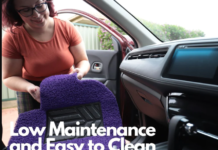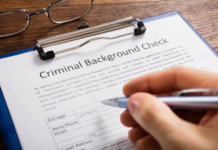Drug addiction is a chronic disease that affects millions of people around the world. It not only harms the individual but also has a negative impact on their family and friends. Seeing a loved one struggle with drug addiction can be overwhelming, and it is natural to feel helpless and unsure of how to help. However, there are several strategies that you can implement to support someone with drug addiction. In this article, we will explore some effective ways to help a person struggling with drug addiction.
Educate Yourself: The first step in supporting someone with drug addiction is to educate yourself about the addiction. Learn about the signs and symptoms of drug addiction, the different types of drugs, and the treatment options available. By understanding the addiction, you will be better equipped to help your loved one.
Offer Emotional Support: Addiction is a complex disease that affects an individual’s physical, emotional, and mental health. Therefore, it is crucial to offer emotional support to your loved one. Show empathy, listen to them, and let them know that you care for them. It is essential to avoid judgment and criticism and to encourage them to seek professional help.
Encourage Professional Help: Drug addiction is a disease that requires professional help. Encourage your loved one to seek professional help, such as counseling or addiction treatment centers. Offer to help them research and find a reputable treatment center, and accompany them to appointments.
Set Boundaries: While it is essential to offer support, it is also crucial to set boundaries. Drug addiction can lead to manipulative behavior, lying, and stealing. Therefore, it is important to set clear boundaries and consequences if they are not respected. This will not only protect you but also help your loved one understand the consequences of their actions.
Practice Self-Care: Supporting someone with drug addiction can be emotionally and physically draining. Therefore, it is essential to practice self-care. Take care of your physical health, engage in activities that you enjoy, and seek support from family and friends.
Avoid Enabling Behaviors: It is essential to avoid enabling behaviors that may unintentionally contribute to your loved one’s addiction. Enabling behaviors can include giving them money, providing them with a place to stay without conditions, and making excuses for their behavior. Instead, encourage them to take responsibility for their actions and seek professional help.
Avoid blaming or shaming: Avoid blaming or shaming your loved one for their addiction, and instead focus on supporting them in their recovery.
Attend Support Groups: Support groups are a valuable resource for both individuals struggling with addiction and their families. Attend support groups such as Al-Anon or Nar-Anon, which offer a safe and supportive environment to discuss your feelings, share experiences, and learn from others.
Be Patient: Recovery from drug addiction is a long and challenging process that requires patience and understanding. Your loved one may experience setbacks, relapse, or resistance to treatment. However, it is important to remain patient and supportive throughout the recovery process.
Celebrate Small Wins: Recovery from addiction is a journey filled with small wins and milestones. Celebrate these wins with your loved one, such as completing a treatment program, attending a support group, or staying sober for a week. Celebrating these achievements can help to motivate your loved one and encourage them to continue on their recovery journey.
Encourage treatment: Encourage your loved one to seek professional help, such as counseling, rehab, or medication-assisted treatment. Offer to help them find resources and support them throughout the treatment process.
Be prepared for setbacks: Your loved one may experience setbacks or relapses, but it’s important to remain patient, understanding, and supportive throughout the recovery process.
Take care of your own mental health: Caring for a loved one with addiction can take a toll on your own mental health, so prioritize your own self-care and seek professional help if necessary.
Get Professional Help for Yourself: Supporting a loved one with drug addiction can take a toll on your mental and emotional health. It is essential to seek professional help for yourself if you are struggling with anxiety, depression, or other mental health issues. A therapist or counselor can provide you with tools and strategies to manage your emotions and support your loved one effectively.
In summary, supporting a person struggling with drug addiction requires patience, understanding, and compassion. By educating yourself, offering emotional support, encouraging professional help, setting boundaries, practicing self-care, avoiding enabling behaviors, attending support groups, being patient, celebrating small wins, and seeking professional help for yourself, you can help your loved one overcome addiction and lead a healthy and fulfilling life.


























